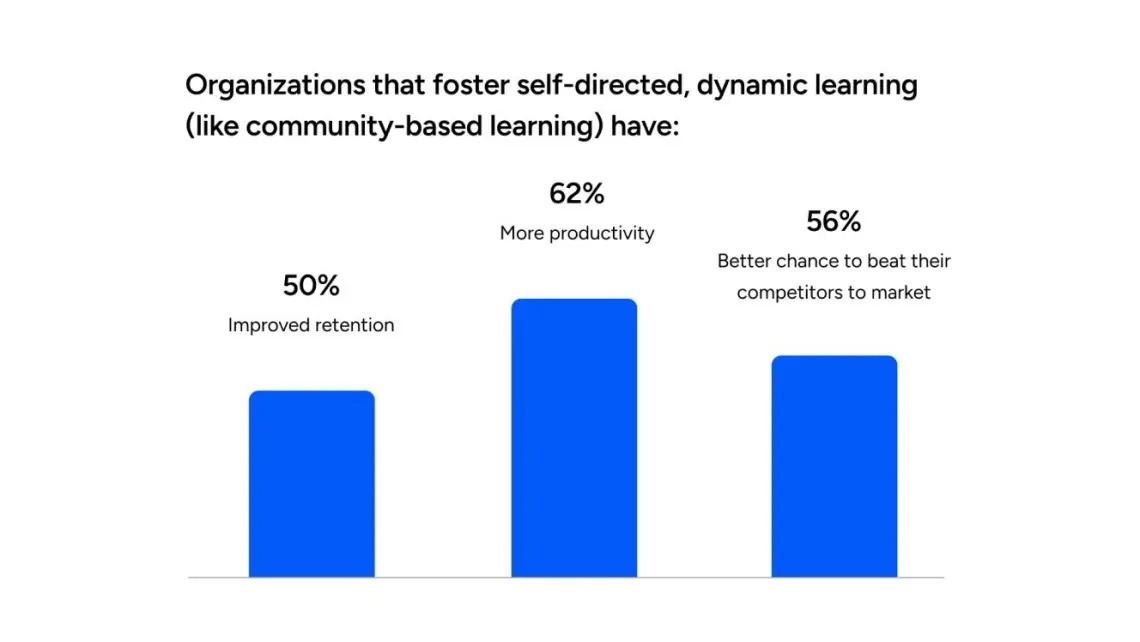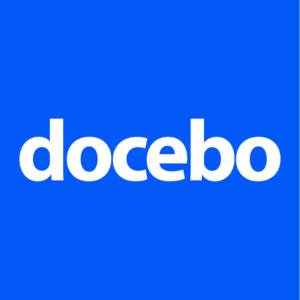Searching For Connection
This is an article about social learning—and it’s upbeat and optimistic. Promise. But please indulge a short pit stop into the land of heavy real talk. Just for a moment. Here goes.
WhatsApp, Instagram, TikTok, Zoom, Teams, Slack, and Reddit make it extremely easy to feel “connected” all the time. But rather than actively communicate with friends, family, and colleagues, social media is often used to passively follow strangers. Where has that “connection” gotten us?
- The percentage of Americans who say they have “no close friends” increased fivefold in a single generation. [1] The UK and other Western countries have shown similar increases in loneliness. [2]
- The percentage of people who have a best friend has dropped 16 points in the last 20 years.
- Depression and anxiety have doubled among young people, mirroring the rise of social media adoption. [3]
We’re more connected than ever. And yet far lonelier. Everyone feels it.
Wharton Professors are coining new words (“languishing”) to describe the feeling of aimless malaise. [4] Montessori schools that once bragged about having the newest, shiniest laptops now market themselves as being screen-free. New businesses are popping up that facilitate in-person dinners with strangers.
We’ve grown hungry for real connection. And slowly, surely, the tide is shifting.
Learning Can Be Social In All The Best Ways
Learning follows a funny trajectory through life. It starts off explicitly social: you go to school and learn with your peers. But as people move into the professional sphere, learning becomes a solitary activity, usually done through a screen. Like social media on a bad day, this can create feelings of isolation. Watching a pre-recorded lecture isn’t a social experience even though it involves a person. And when learning is genuinely social—like at a conference or in a workshop—it’s ephemeral. It lasts a few days, or a semester at most.
But people crave real connection. That’s why social learning has grown 6% in the last three years, taking market share from other forms of learning (like mobile learning and webinars) that have stagnated or declined in popularity. [5]
It’s effective, too. When learning socially, two-day knowledge retention increases by 41 points—from 28% to 69%. [6]
There’s no fancy jargon here. “Social learning” is literally just the learning that happens through interacting with others. It’s often (but not always) informal and often (but not always) collaborative. Sometimes it’s one-on-one (like a mentorship), and sometimes it happens in a community. It can be in-person and it can be digital. The key is that it’s a substantive exchange; you’re not passively scrolling through a stranger’s reel or profile—you’re actively engaging with them in a social and intellectual way.
Unlike typical social media, this fills us up rather than wears us down, even if it happens online. [7]
The Power Of Social Learning
Organizations that cultivate community-based learning approaches see big benefits: 30–50% better retention rates, 52% higher productivity, and 56% more likelihood to bring products to market ahead of their competitors. [8]
The other great thing about social, community-based learning is that it’s naturally scalable. Most of the content is generated by users, which means, as your community grows, your population of experts and content creators grows with it. Moderation matters, too. But you don’t need to handle it all internally. Once members of your community have proven themselves, they can also be given moderation permissions.
Social learning is also the gold standard of social proof. When employees opt into social learning, they are, by definition, connecting with other highly engaged people. The same is true for customers, who look around a learning community and see people using your product and engaging with your brand.
Of course, the right technology can help as well. A powerful learning platform makes it easy to deliver social learning at scale. You can create diverse communities based on audience, role, or region, assign permissions, pin and search content, and use gamification features like badges. These features all make it even easier to scale your social learning efforts and maximize engagement.

Best Practices And Common Challenges
At the top, we promised this article would be upbeat and optimistic. So let’s run through some solutions to common challenges, but in a positive way. Ready?
-
Plagiarism And Recycled Content
To prevent this, don’t shame people for plagiarism; reward them for originality. Lean into the power of the personal: ask learners to share personal experiences and include photos, screenshots, or videos to filter out recycled content.
Every mistake is an opportunity for correction, so don’t delete incorrect information. Instead, acknowledge the error and provide the correct information with a reliable source. This is especially important if a learner posts something incorrect about your product: share accurate information with a positive spin, highlighting the correct details.
-
Disrespectful Or Abusive Behavior
Set up clear community guidelines and enforce them in a way that’s visible. A tag that says, “This post was deleted for breaching our community guidelines” signals that civility matters. And don’t correct the offending party publicly, as this can make them feel defensive. If it’s a repeat issue, reach out to them privately.
Organize recurring activities that promote new content. Try something like “Mistake Mondays,” where members can share new solutions to mistakes they were making.
These practices are important but not onerous. At Docebo, our Community has achieved incredible engagement. We have over 6500 users, and 99% of questions asked in our community are successfully answered by other community members. That’s a lot of saved support tickets!
Social Learning In Action
It’s case study time. Let’s talk about Kiehl’s, a global skincare brand. They revamped their employee education system with Kiehl’s Academy, leveraging Docebo to support 4500 users across 45 countries.
Social learning is a fundamental part of their learning program. The global community forum facilitates knowledge sharing and collaboration among users. An “Ask the Expert” page empowers product experts to demonstrate their knowledge and techniques, capturing knowledge and educating others. Gamification elements (including badges and a rewards store) reflect Kiehl’s commitment to quality education and sustainability.
By fostering an interactive and supportive learning environment, Kiehl’s Academy not only improves knowledge retention but also builds a strong, connected community of learners. Employees love it, and the organization has seen incredible results, including 100% completion rates (yes, really) for critical training.
Summary
Real connection is more vital than ever—in learning and everywhere else. Social media is a poor substitute for real connection because it’s passive and detached. But social learning fosters active, genuine interactions and community engagement. Organizations embracing social learning see remarkable benefits, from increased retention rates to higher productivity and innovation.
Community-based learning can increase the skills and productivity of employees, improve customer engagement and retention, and reduce support costs, especially with the right technological tools. It’s easy to scale, deeply effective, and a powerful brand-builder.
Everyone is looking for a sense of community. Let that search lead them to your organization.
References:
[1] Men’s Social Circles are Shrinking
[2] Loneliness and Social Connections
[3] How to Calm The Anxious Generation
[4] There’s a Name for the Blah You’re Feeling: It’s Called Languishing
[5] Learning at Work 2023
[6] The Power of Collaborative Learning: More Important Than Ever
[7] Does Using Social Media Make You Lonely?
[8] Is your organization simply irresistible?

Docebo
Docebo is the world’s most powerful learning platform, built for the business of learning.

